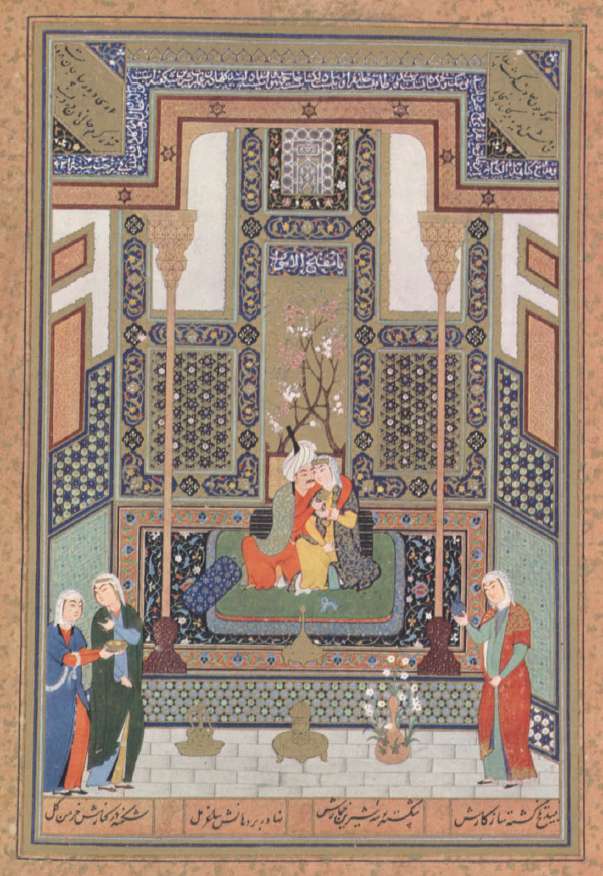FWP:
The story of Shirin and Farhad is told in various versions; see {1,2} for further discussion.
This verse is another in the series of snide remarks about famous lovers of the past; for more about such verses, see {100,4}.
The chief charm of the verse is surely its shock value. As Mihr observes, Ghalib has brought out a new and unexpected aspect of a traditional story-- and has insulted, with a show of virtuous indignation, one of the great lovers of ghazal tradition. He's done a similar thing already in {3,6}, in which he sneers at Farhad for needing to use an axe to kill himself.
All such snide remarks can of course also be taken as tongue-in-cheek. The later lover might well be jealous of his predecessor's fame, and could thus be reacting with a sour-grapes attitude. He might well jump at the chance to do, himself, what he accuses Farhad of doing. (In this connection, consider {99,3}.) For after all, isn't the beloved properly worth any sacrifice-- including the sacrifice of pride, and self-respect, and one's good name?
Note for grammar fans: Nazm's criticism is that 'by us X is [not] accepted/granted' is what the grammar needs to be, just as in the case of manz̤ūr . But this isn't the sense of taslīm , which means 'accepting, granting'. Nazm's objection assumes that there is no iẓāfat after taslīm ; if there were one, then the grammar would work well: 'by us is [not] the accepting/granting of X'. Of course, the iẓāfat is a Persian construction, and in principle it should not be used with Arabic words. Perhaps that's why Arshi gives no iẓāfat ; as usual, I follow his text. (However, in {169,3}, Ghalib has clearly used taslīm-e hosh .)

Nazm:
[He criticizes the verse for a misuse of Arabic grammar: tasliim should mean actively 'accepting, granting', rather than 'accepted, granted'.] (107)
== Nazm page 107